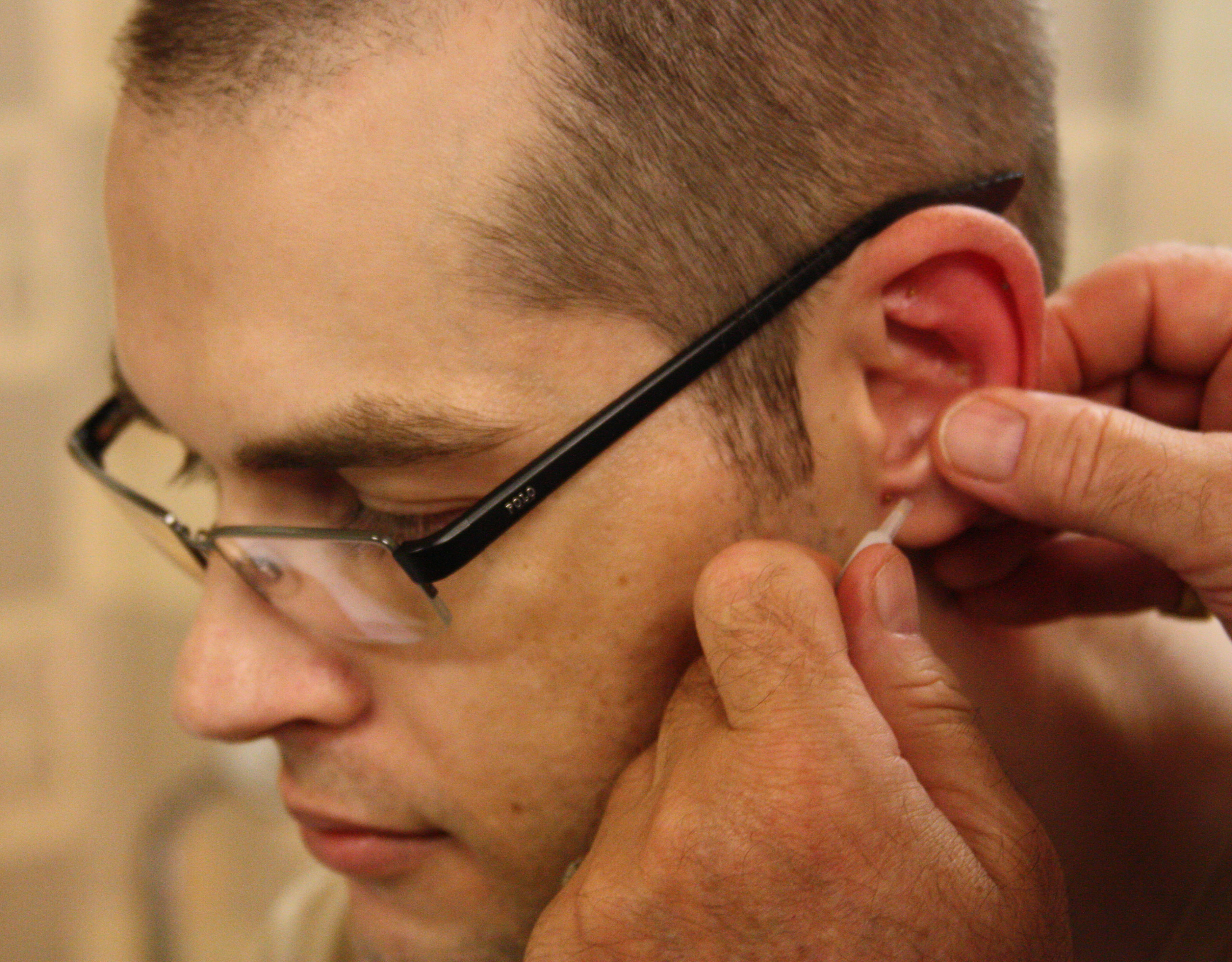WASHINGTON — Tucked behind Nielson’s Village Center in Bluemont, Virginia, is a resort unlike any other.
Log cabins equipped with stone fireplaces, gourmet kitchens and “the best beds money can buy” sit atop a small hill overlooking lush green fields, horse stables, hiking trails and a walled-in therapeutic garden.
By definition, Boulder Crest Retreat is a five-star resort. But unlike others in its category, its nightly rate won’t set you back a penny — that is, if you’re a combat veteran.
“Our philosophy here is that anyone who goes into combat is going to see the worst that humanity has to offer, and they’re going to have some level of stress and trauma that they’re going to have to deal with,” says Ken Falke, the chairman and founder of Boulder Crest Retreat.
“I think at the end of the day, what people need is a recharge and a little bit of life coaching — and that’s what we’re hoping to be able to provide.”
Falke and the staff at Boulder Crest Retreat are doing just that, but in a way that sets this wellness center apart from any other in the country.
A center designed to ‘unstick’ soldiers and their families
In 1989, Falke, a 21-year combat veteran, was seriously wounded while serving as a U.S. Navy Explosive Ordnance Disposal (EOD) Technician and Master Chief Petty Officer.
When he returned home, he and his wife, Julia, set up a small charity to provide assistance to other active duty and injured EOD warriors.
They spent their time visiting wounded veterans and their families at Walter Reed National Military Medical Center and invited many of them out to their 200-acre estate in the foothills of the Blue Ridge Mountains.
The short stays were meant to serve as an escape from the cramped hospital rooms and stressful city environment.
In 2010, the Falkes made their efforts permanent. They donated 37 acres of their personal property to build a wellness center for combat veterans, and in 2013, Boulder Crest Retreat opened its doors.
Simply put, the purpose of Boulder Crest is to provide a peaceful place where veterans can “unstick” from the trauma they experienced at war.
“They come to us stuck. They come to us with a desire to return to a person that they knew who was more easygoing, was more able to engage with people, have relationships, sleep,” says Josh Goldberg, director of strategy at Boulder Crest Retreat.
What does it take to “unstick” a warrior?
Boulder Crest’s staff of veterans and therapists employs a number of techniques. Sometimes, it’s unlearning behaviors fundamental to combat.
For example, hypervigilance and hyperarousal are qualities that are critical for soldiers to possess, but Goldberg says they don’t work in everyday life. The same can be said for constant self-evaluation. During war, being your own worst critic helps protect your life and the lives of those around you.
“At home, it can lead to a lot of self-doubt and a lot of issues,” Goldberg says.
Talking about sensitive issues and engaging in small-group physical activity are two methods central to the healing model at Boulder Crest Retreat.
“It’s conversations about who do you want to be while you’re kayaking in the Shenandoah River. It’s a conversation about stillness and meditation and breathing and focus while you’re doing archery,” Goldberg says.
Equine therapy is also used. Nuzzling up to a horse may not sound like an exercise that can mend the psychological and physical wounds of war, but Goldberg says mastering the calm and collected demeanor that’s needed to approach the animal is a skill that veterans work on during their stay.
“If you’re not honest, if you’re not open, if you’re not calm, that horse is not going to engage with you,” he explains.
Boulder Crest Retreat offers five different programs for its guests — ranging from seven-day stress recovery retreats to daylong seminars focused on career transitions. But it also offers help for those who experienced the agony and anxiety of war at home.
“What we believe and what we know is that combat-related stress is absolutely contagious,” says Goldberg, who adds that war impacts more than the estimated 700,000 veterans who struggle with combat-related stress. “It is very fair to expect that their 1.4 million or so family members are also struggling.”
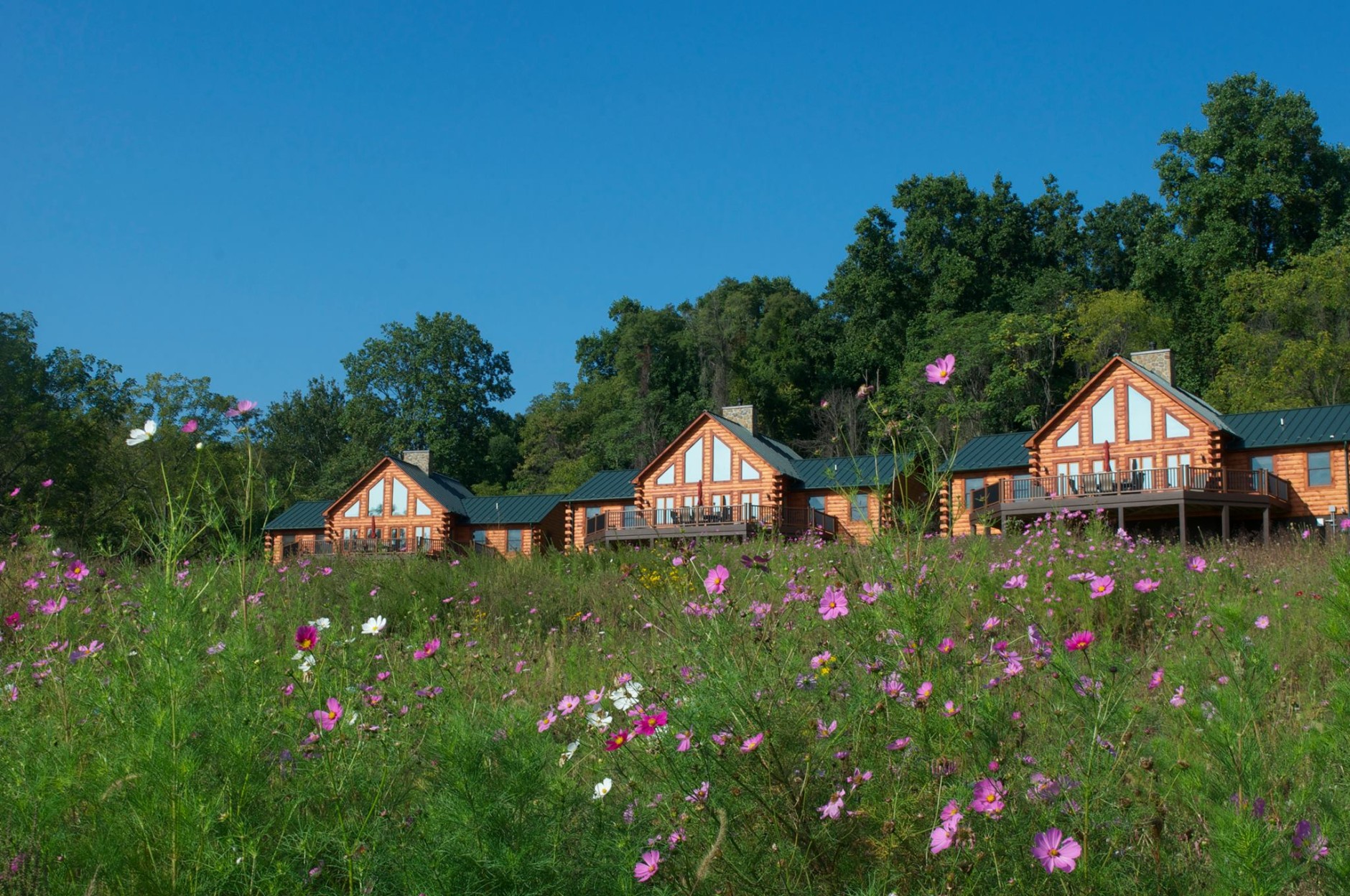
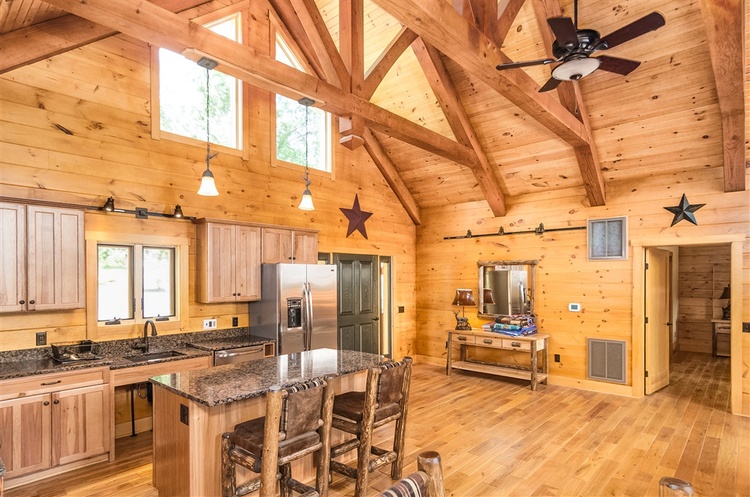
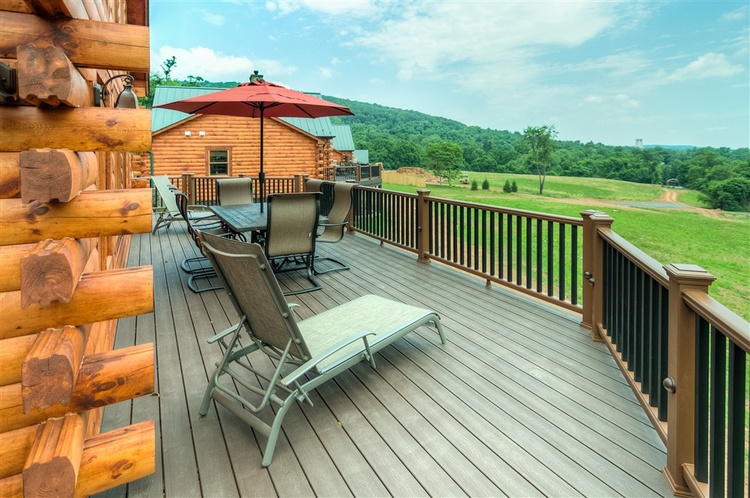
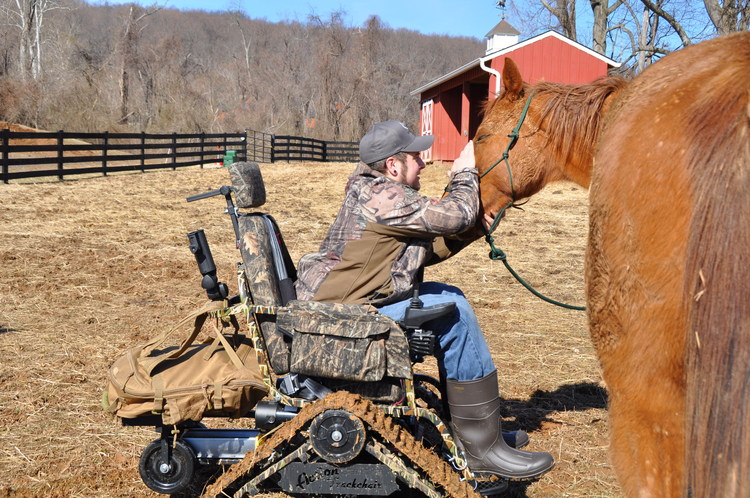
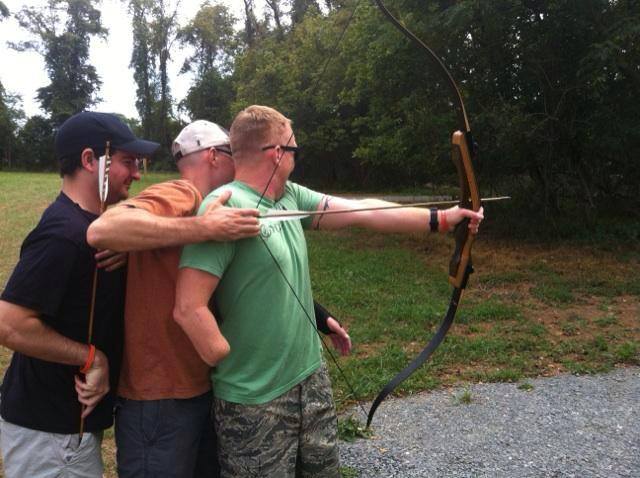

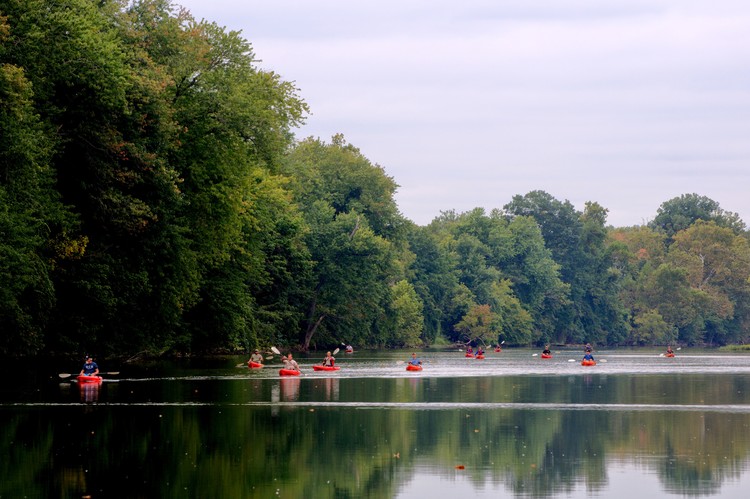
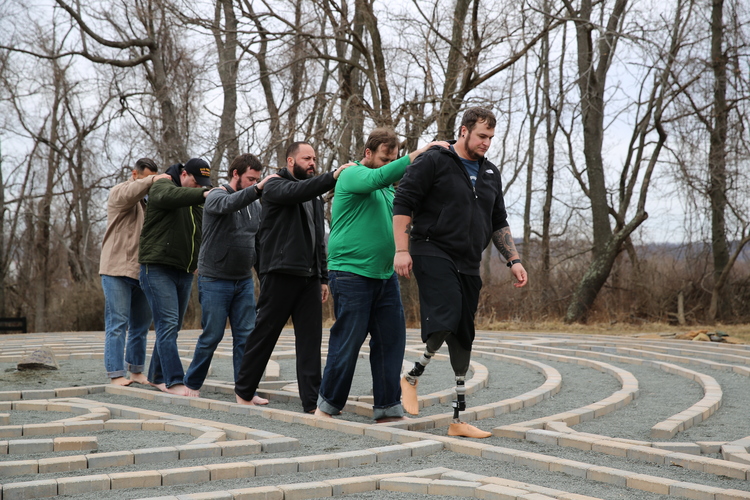
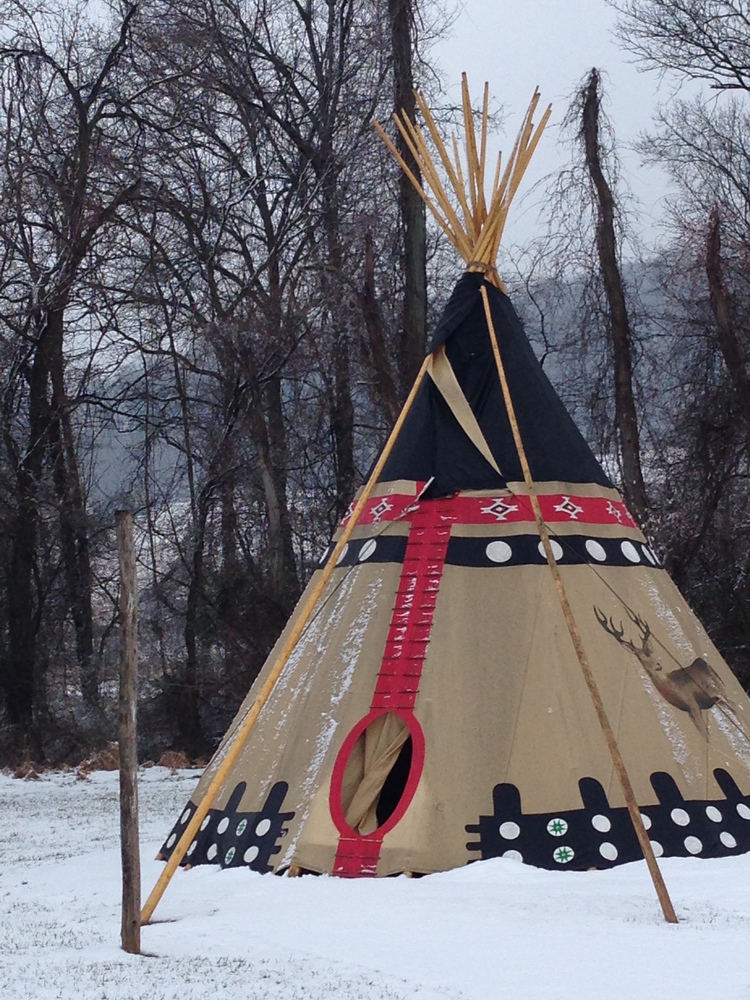
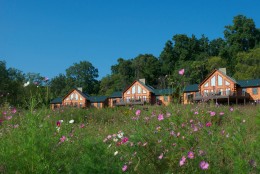
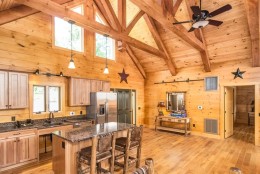
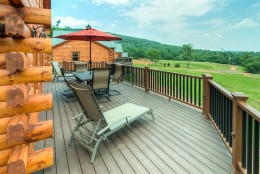
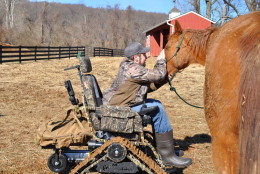
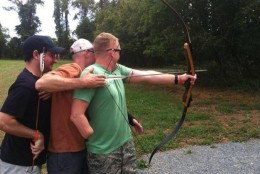
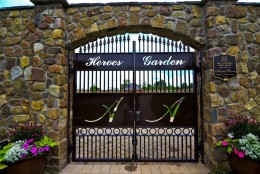
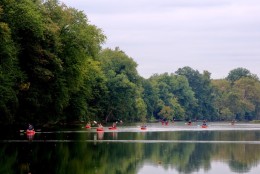
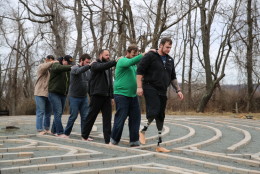
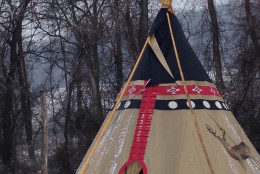
During the five-day family program, participants partake in individual, couple and group therapy and recreational activities. Resting and re-connecting are the ultimate goals.
“If you don’t focus on them and honor that contribution that takes place out of the line-of-sight of most people, then you will fail the entire family, and you will certainly fail the veteran as well,” Goldberg says.
Making a model for future veteran care
Falke is big on utilizing alternative therapies at Boulder Crest Retreat. It’s an approach that he says helped him recover from a broken back sustained from a parachute jump.
“In 1989, most people thought chiropractors were witch doctors. It wasn’t paid for by the Department of Defense, it wasn’t paid for by military insurance, and at the time, it wasn’t paid for at the Veterans [Affairs],” he says.
But he credits his fast recovery to chiropractic therapy and other methods of holistic healing, and hopes he can bring the same relief to others.
Yoga, gardening, cooking, meditation and music are all part of the programs offered at Boulder Crest Retreat. Guests also walk a Labyrinth and have reflection time in a tepee.
“People might say, ‘How can petting a horse help you get healthy?’ But the truth is, it works,” Falke says.
And he’s on a mission to prove it and to shape the future of veteran care.
“I think we’re on to something big … We’re seeing a reduction in PTSD symptoms by about 75 percent, and that’s sticking, too, which is really interesting. We’re seeing families come back together and we’re hearing testimonials like, ‘It’s the first time I’ve seen my husband sit down and play with the kids since he’s been back from war; it’s the first time my husband’s slept.’”
Preparing the next greatest generation
Before guests leave, they set goals on where they want to be and how they’re going to get there. Even after they leave, the staff at Boulder Crest Retreat remains in contact with the veterans via monthly video conferences and accountability meetings.
“You don’t want things to be New Year’s resolutions; you want them to be legitimate and genuine goals, and to do that requires accountability,” Goldberg says.
That’s one aspect that sets Boulder Crest Retreat apart from other wellness centers throughout the country. Another is its funding model. Boulder Crest is the nation’s first privately funded retreat for combat veterans and their families — meaning those who stay don’t pay anything.
Goldberg estimates the destination accommodates about 700 veterans a year, but still, 2 million more are in need of care, and more centers like Boulder Crest are needed to accommodate these veterans.
Both Falke and Goldberg say ensuring veterans have access to all-encompassing mental and physical care — not just medication — is critical to the health and future of the U.S. military.
“Part of our obligation, and George Washington said it long ago, is that the likelihood of people signing up to be part of the military is predicated on how they see the previous generation being treated,” Goldberg says.
Educating the public on what these veterans experience and helping veterans understand their unparalleled potential is another mission of Falke and Goldberg’s.
“These are men and women with a unique set of skills and capabilities that the rest of us don’t have — because we haven’t been tested to that extent,” Goldberg says.
“This is the finest group of people I’ve ever met and the strongest group of people I’ve ever met. Even when they’re struggling at a wit’s end, they still have a sense of service and integrity and honor and strength that most people don’t possess.”

